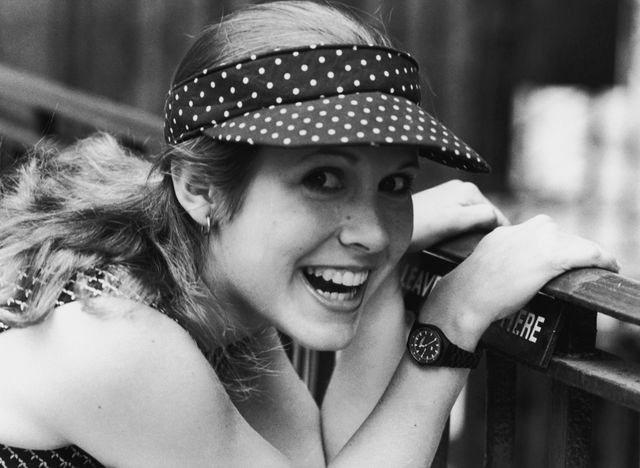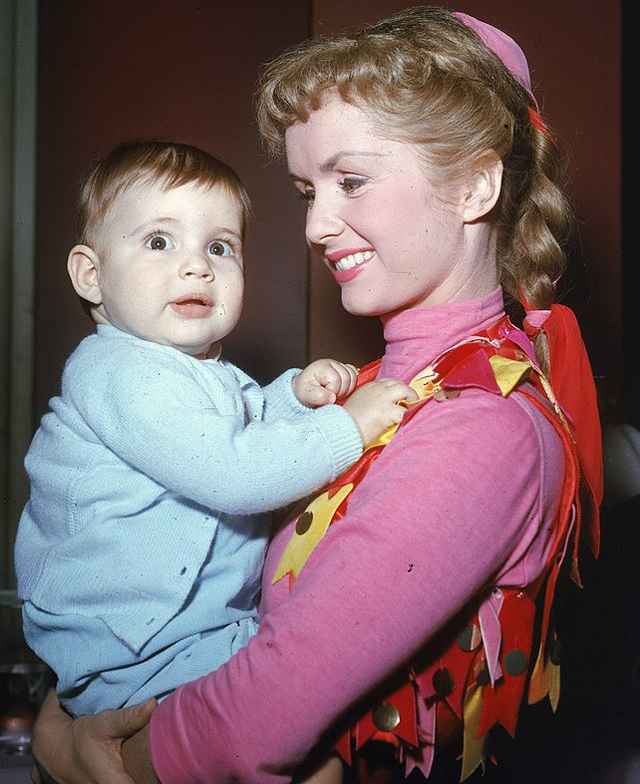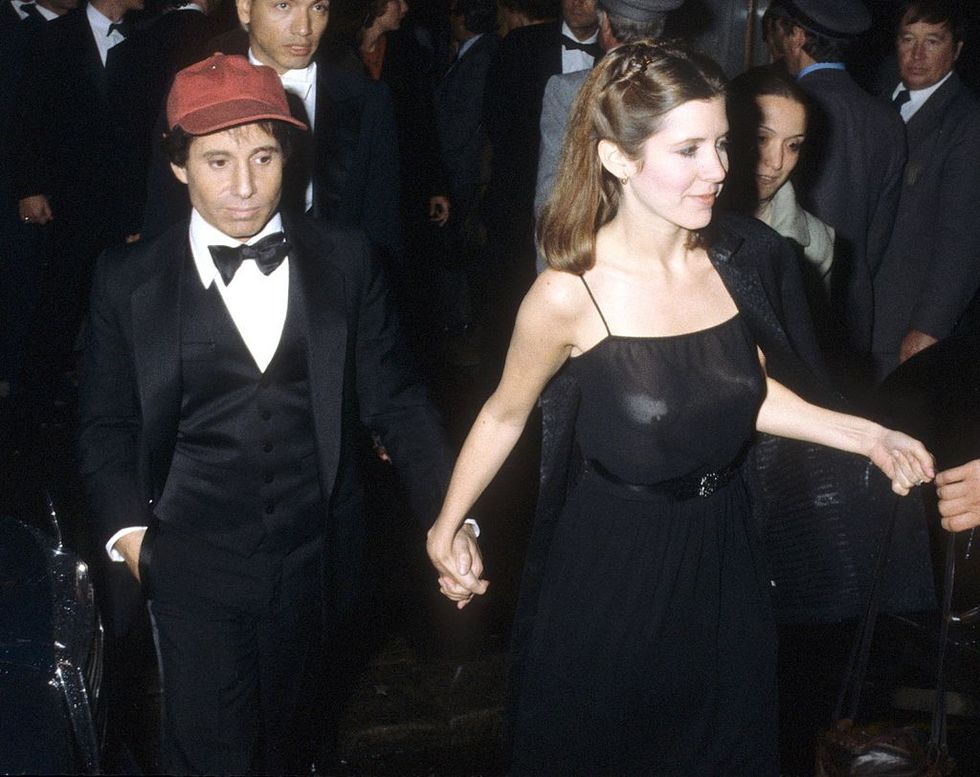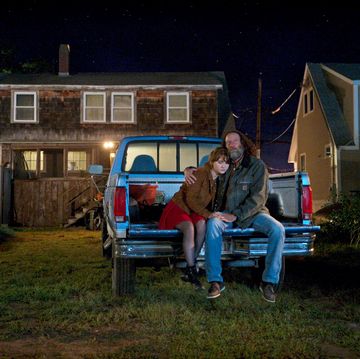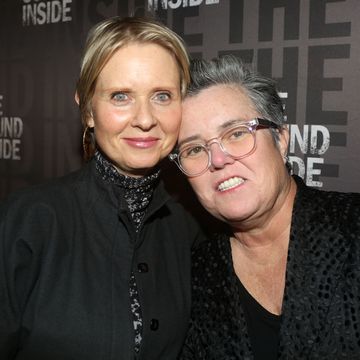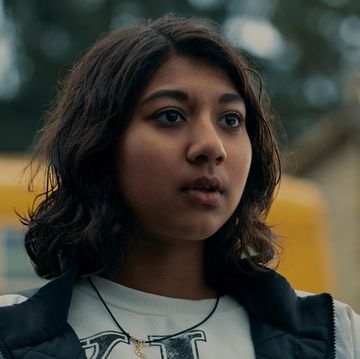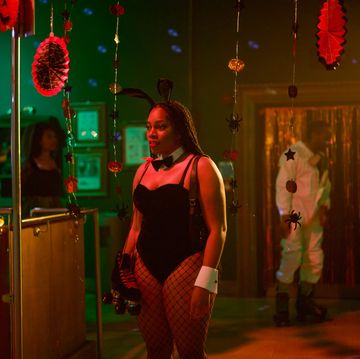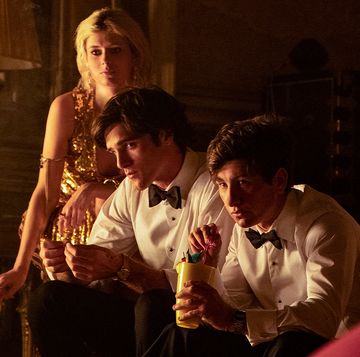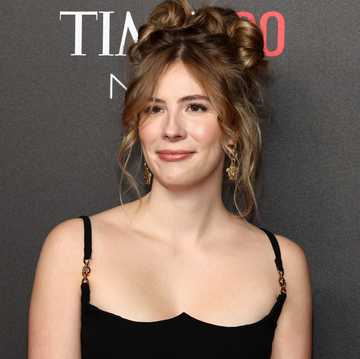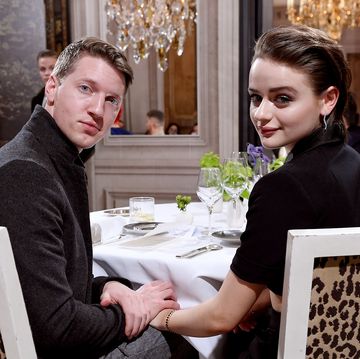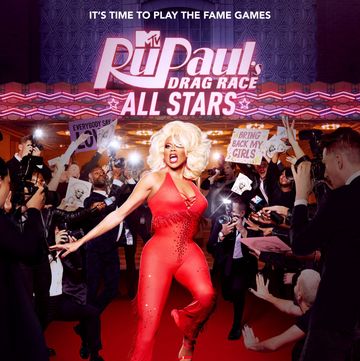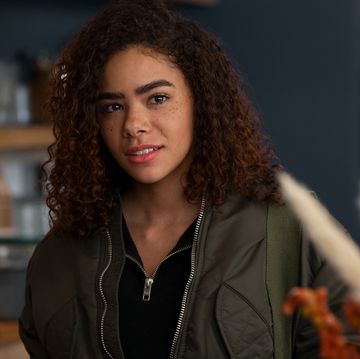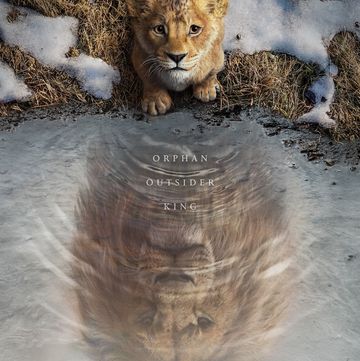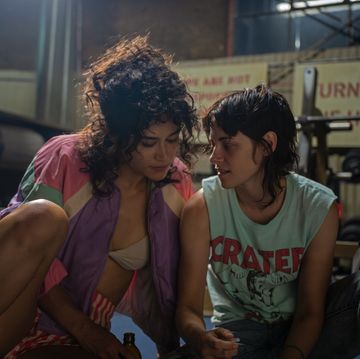It's hard to overstate the impact Princess Leia had on girls lucky enough to have had childhoods in the early '80s (onlyslightly less for boys, and I'm not talking the silly slave outfit either). Thanks to George Lucas' deep (sometimes disturbing) devotion to merchandising, she was everywhere. She was on lunch boxes, towels, sheets, pajamas. She was on the same trading cards the boys in my neighborhood collected. She was on cereal boxes. She was on an enormous poster in my dentist's office. She was at the checkout of the grocery store, which is where I went every two weeks to spend my allowance on androgynous Star Wars figures (no sexed up Barbies here; she was covered up and largely resembled a box with braids). She was, as Carrie Fisher once pointed out in anacerbically hilarious roast of Lucas, once a Pez dispenser and a shampoo bottle.
[youtube ]https://www.youtube.com/watch?v=lZ97s396kb0 [/youtube]
For a scrappy adventurous independent eight-year-old, this meant that there was very little in my world to suggest that being bossy, smart, sharp, and taking charge wasn't something to be celebrated and rewarded in women. Whatever other messages I was receiving about how girls were supposed to comport themselves in the world—I don't recall them clearly, but surely they had something to do with my mother vainly insisting I wear skirts and white ankle socks—they were entirely drowned out by the sheer comprehensiveness of Princess Leia's presence. It would be decades beforeI realized what a rarity this was, or that one of the reasons my gaze landed on her so exclusively and unrelentingly was that there was nowhere else for it to land.
Needless to say, Carrie Fisher was hopelessly and endlessly entwined in this obsession. ("What Star Wars star is the daughter of Debbie Reynolds and Eddie Fisher?" was long the only Trivial Pursuit question I could be counted on to answer correctly.) I did not, or could not, differentiate between the two as a child.
This is by and large a recipe for disaster in later life. Fallen childhood heroes who turn out to be unworthy of the unadulterated love of eight-year-olds are not exactly a rarity. And yet, I would hazard that Fisher managed to pull off not one, but two miracles: She was better in real life, and got better with age, both mine and hers.
Some of this has to do with the fact she was, at the core, always recognizable. And not in the celebrity sense. In many respects, and perhaps not surprising considering her heritage, she often felt like a star in the Old Hollywood understanding of the word; when actors were not so much cast to type, but simply appeared as exaggerated variations of themselves. I think here of John Wayne, or Katharine Hepburn, or Bette Davis—iconic figures whose powerful real-life personalities were never far from those of the characters they played. Fisher's acting career never rose to those ranks, but when you do see her on film, regardless of the character she is inhabiting, she is always Carrie Fisher. This is true fromher first role in Shampoo at the age of 18, all the way through to herunforgettable part in When Harry Met Sally.
[youtube ]https://www.youtube.com/watch?v=tj7MZE6y9K4 [/youtube]
She's a scene-stealer from start to stop. Possibly this had something to do with her voice: It always sounded as though it were emanating from a world-weary, aging silent film queen who'd smoked too many cigarettes, rather than a teenager facing down Warren Beatty and Harrison Ford, male movie stars decades her senior. But mostly it had to do with the fact she always played women who spoke their minds and never seemed defined by their relationships.
I don't think it's an accident that the same can be said of Fisher, herself. (How many people just discovered she was once married to Paul Simon, or like myself knew it, and simply forgot?)
Whereas the fictional princess she first played at age 19 was an abiding role model for girls, the real life Fisher—the very definition of give-no-fucks—was often one for women. Particularly as she developed into an avatar of survival, who continued to give the middle finger to the assumption that she should have long ago exited the stage instead of inflicting her aging on us. Instead she persisted. Visibly.
"There's a part of me that gets surprised when people think I'm brave to talk about what I've gone through," Fisher once said. "I was brave to last through it." She may have been referring to any number of things: her struggles with mental illness, her struggles with addiction, her struggles with famous parents, but perhaps at the end of the day, it's the simple matter that she did last, and on her own terms, that defines her bravery best. She was honest in an industry and world where honesty from women is rarely rewarded. She was smart. She was funny. She was that thing that women are trained to not be from very early on: unapologetic. And above all else, she was a writer who demanded to be in charge of her own story, an achievement nearly as rare for grown women as finding a rebellious galactic take-charge princess role model is for girls. Her life, as much as her most famous character, gave us a new and necessary language with which to speak about our own lives.
I can't help but note that the timing of her loss feels especially brutal. The world we are heading into feels eerily similar to one in which the Star Wars franchise dominated: A Republican president, with a flashy background in entertainment. The terrifying specter of nuclear war. The catapulting backwards of women's rights on nearly every level. Forty years later let's hope we learned enough from Princess Leia the first time around we can now be counted on to save our own skins.
